Artificial vs human intelligence: a case study of translating jokes based on wordplay
Artificial intelligence (AI) technologies used in professional translation question the effectiveness of human-AI interaction. Deep learning can mimic human cognitive processes, accordingly suggesting that AI could reproduce the logic and mechanics of the source text in the target language. The study necessitates an objective assessment of the neural machine translation (NMT) naturalness, which will apply prompt engineering to optimize the translation process, save resources, and ensure the sustainable development of super-central and central natural languages of the world. The study employs English rhyming/non-rhyming pun-based jokes, and the corresponding Russian translations performed by both professional translators and by ChatGPT-4o, with the prompts for human and AI translators being the same. The results obtained were processed using linguistic and translation analysis followed by textometric and statistical analysis. To evaluate the humorous effect of the translated jokes and to identify signs of artificiality in these jokes, 150 informants were surveyed. The study established the degree of humorous effect and the naturalness criteria for the translated jokes. While the source text lacks terminology, specialized words and complex grammar, the AI-generated translations were perceived as complex due to literalisms and calques. Conversely, human translators prefer a holistic translation technique and are more flexible to interpret imagery and syntactic structures of jokes. This highlights a greater creative freedom of human translators, who avoid stereotypes and generate novel interpretations. In conclusion, the study measures the effectiveness of AI as an auxiliary tool for translating and assessing pun-based jokes.

Figures

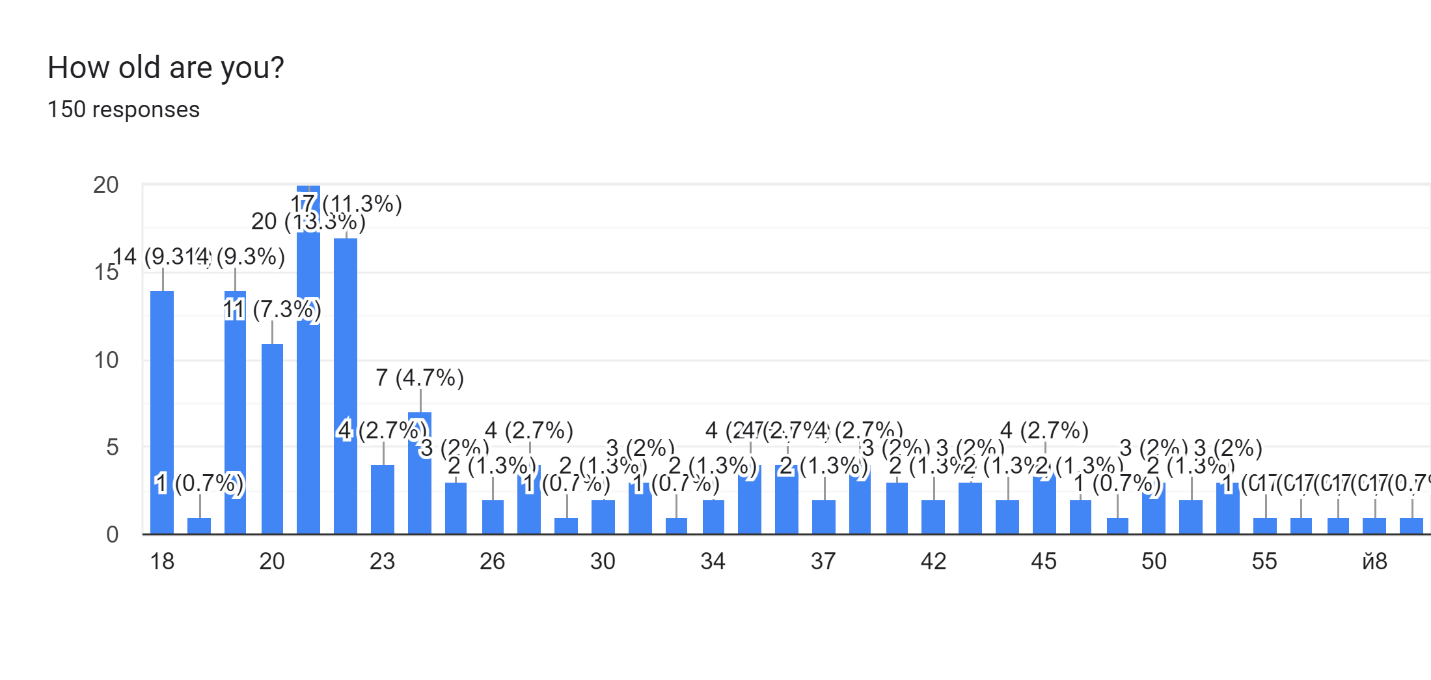
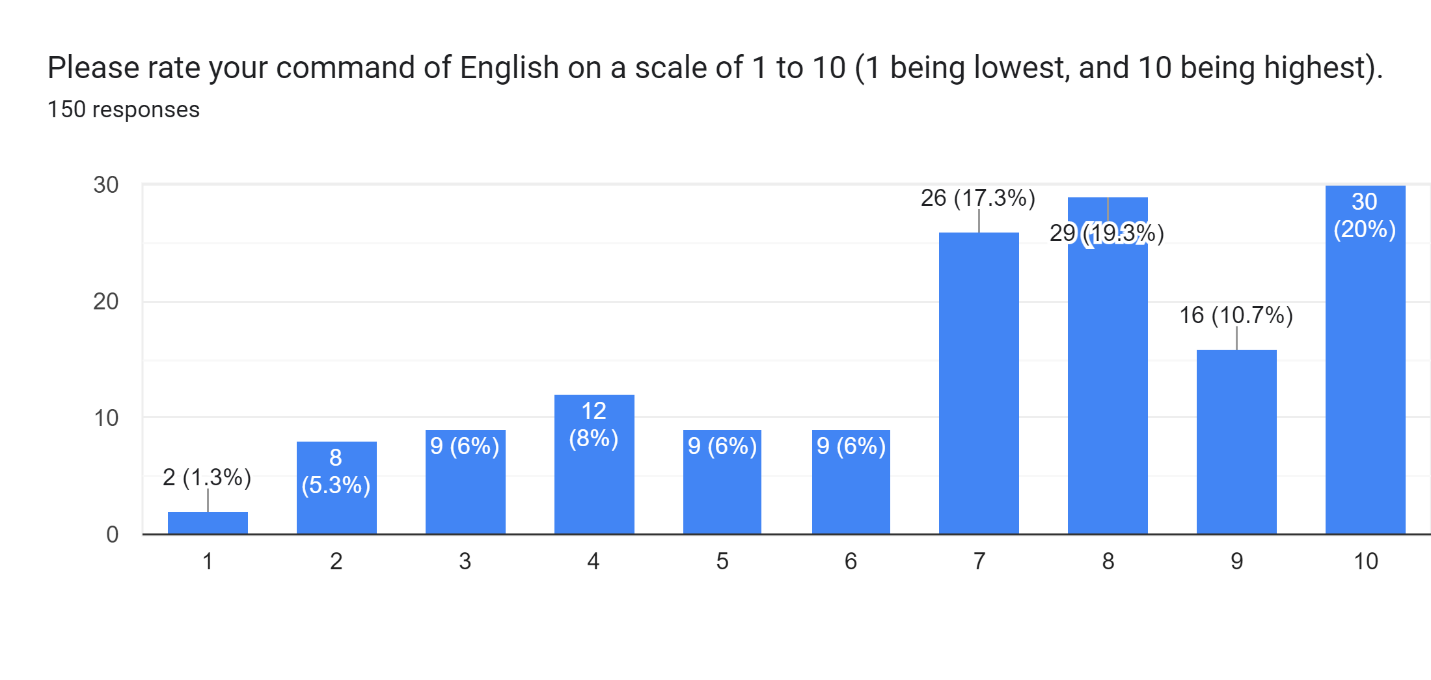
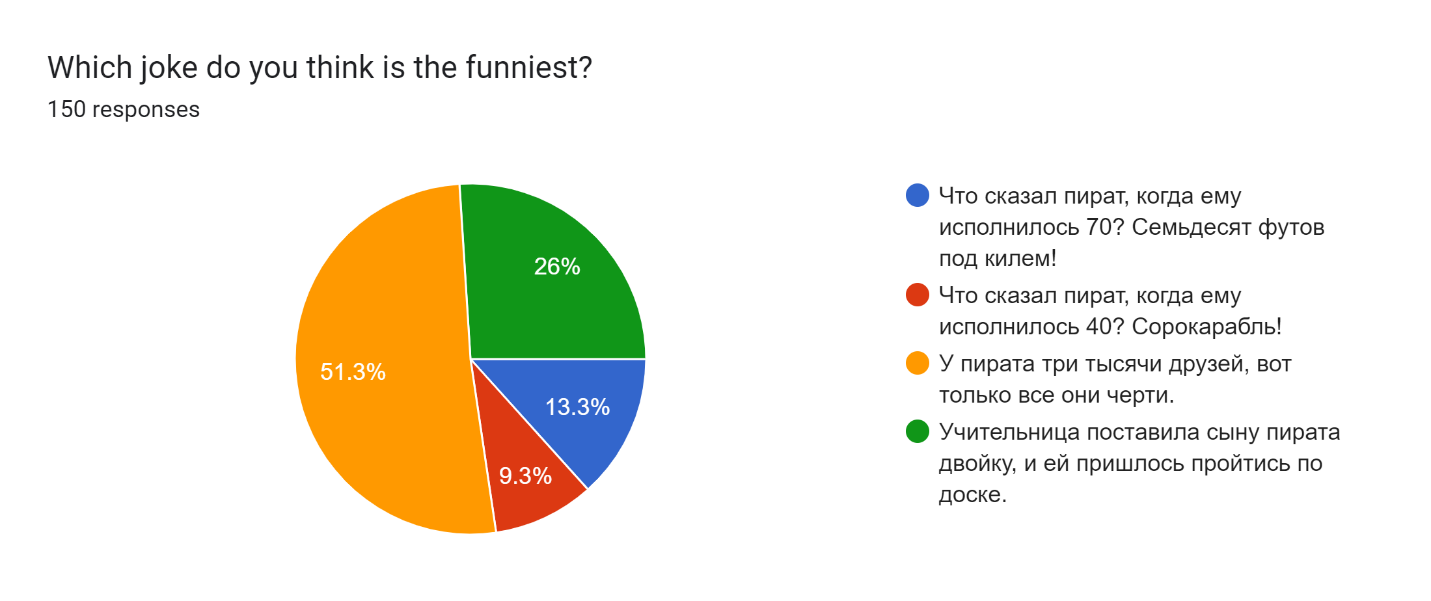
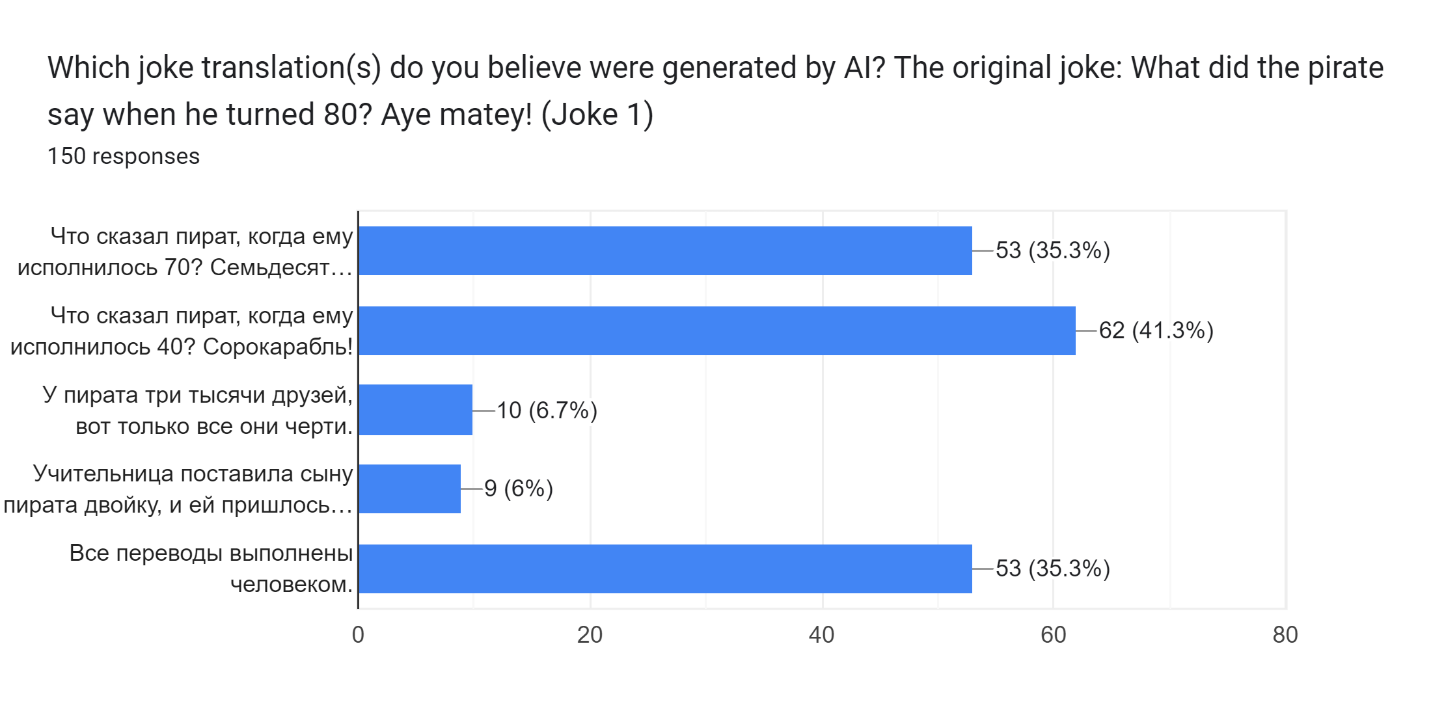

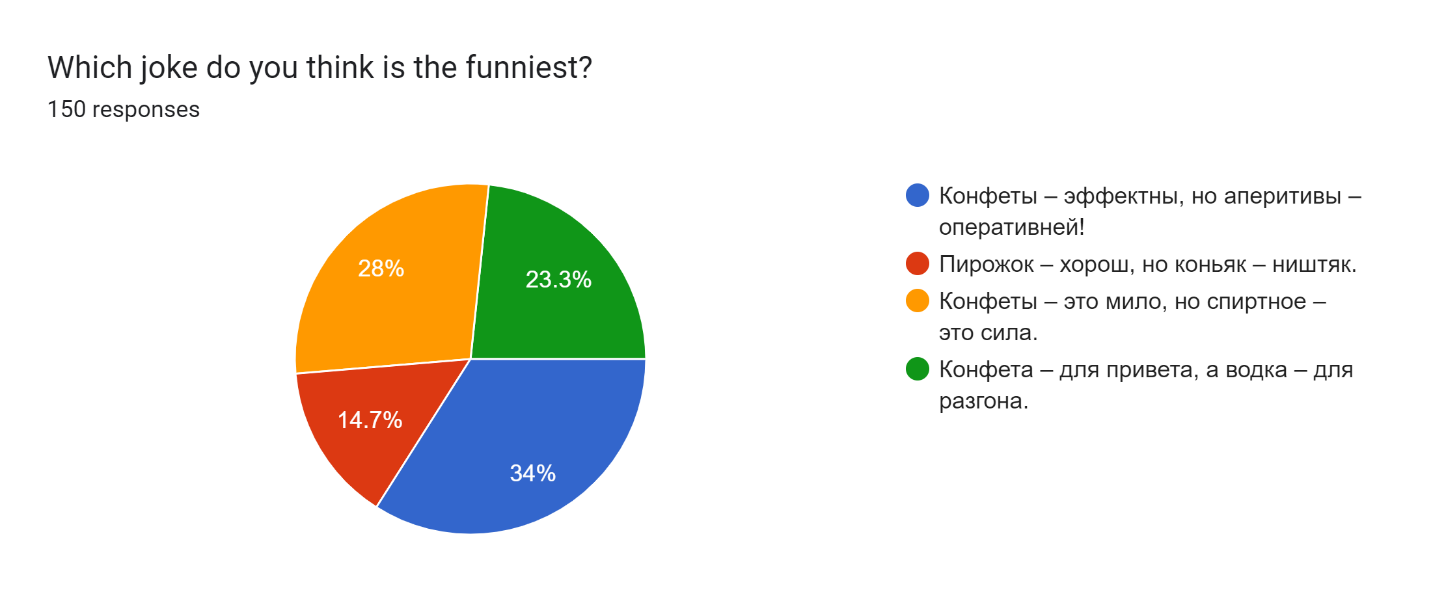
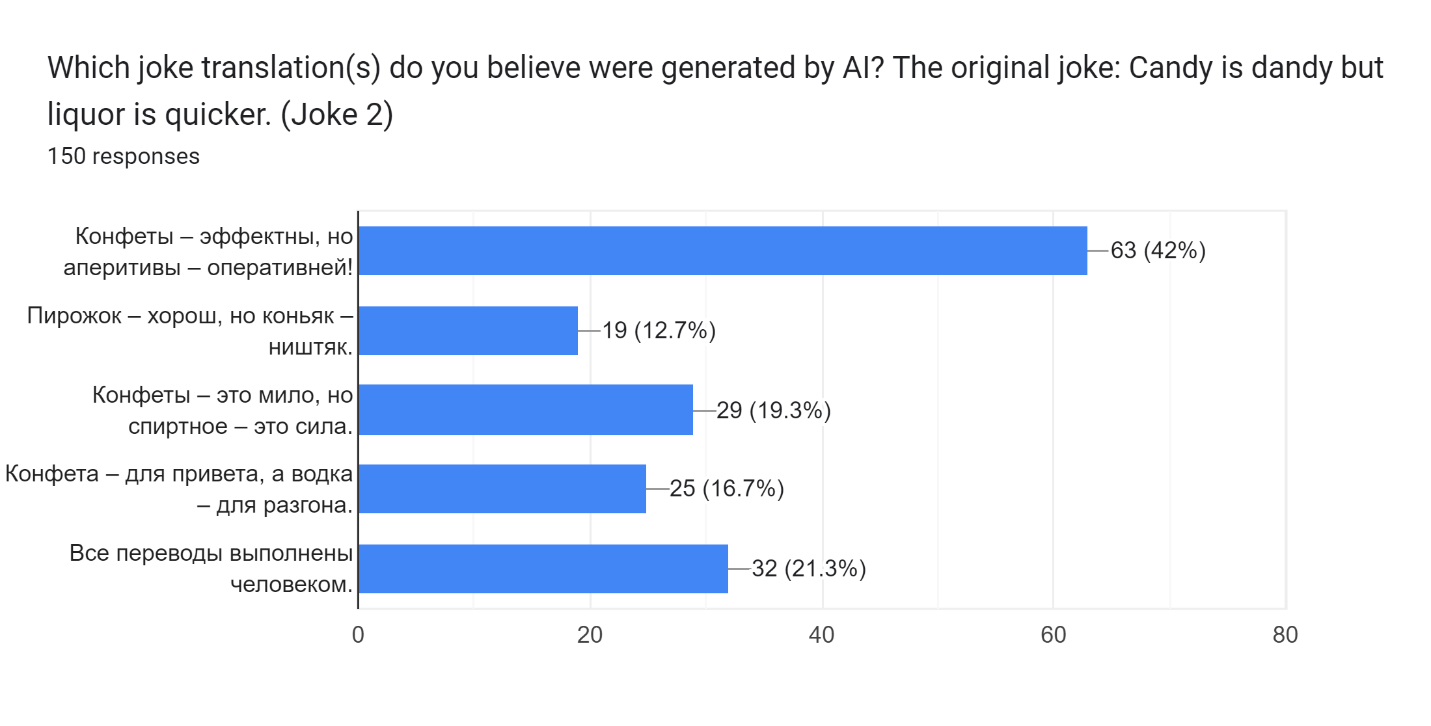

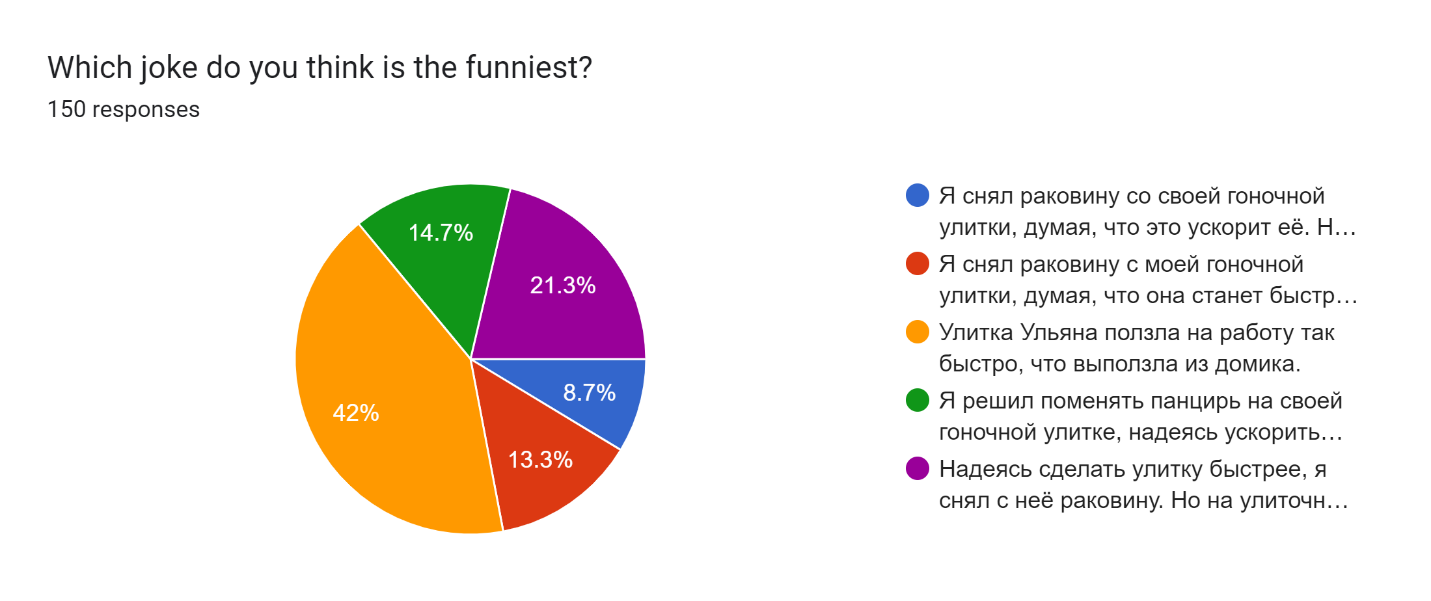
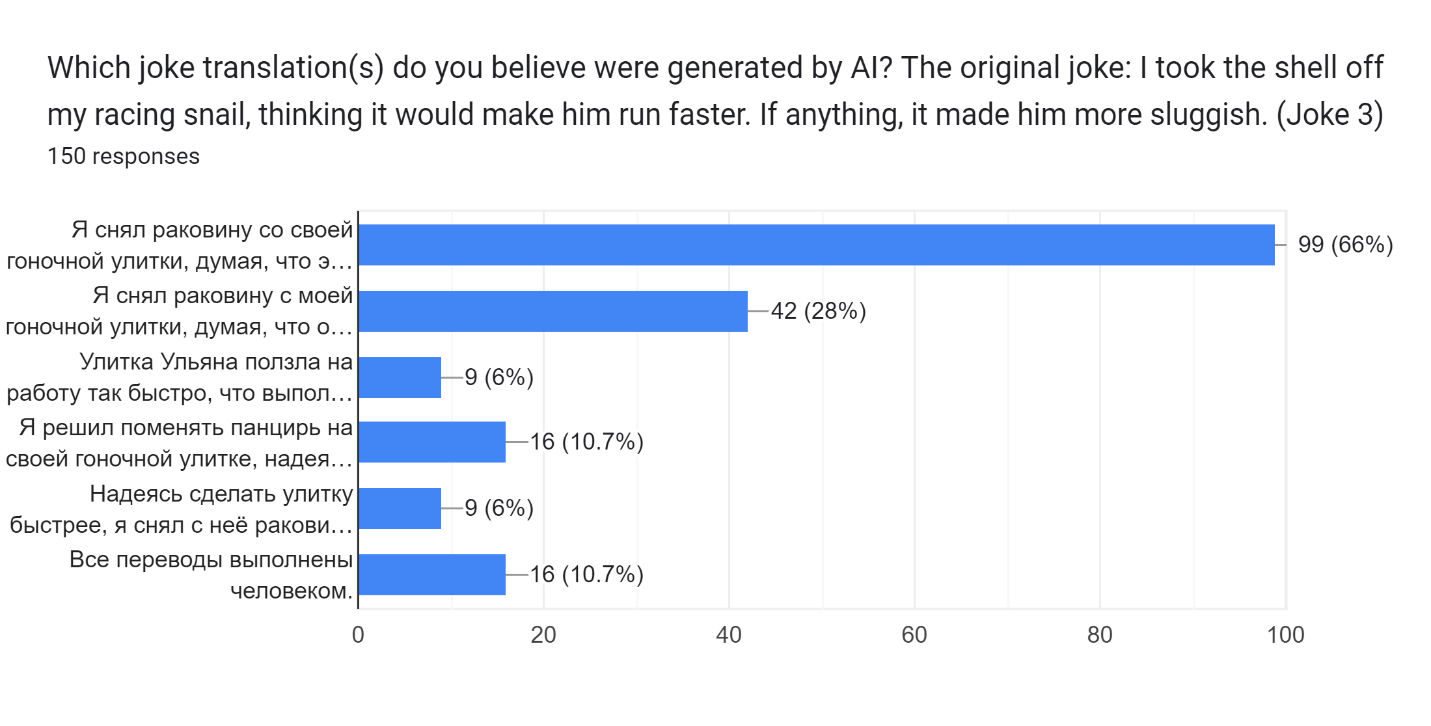

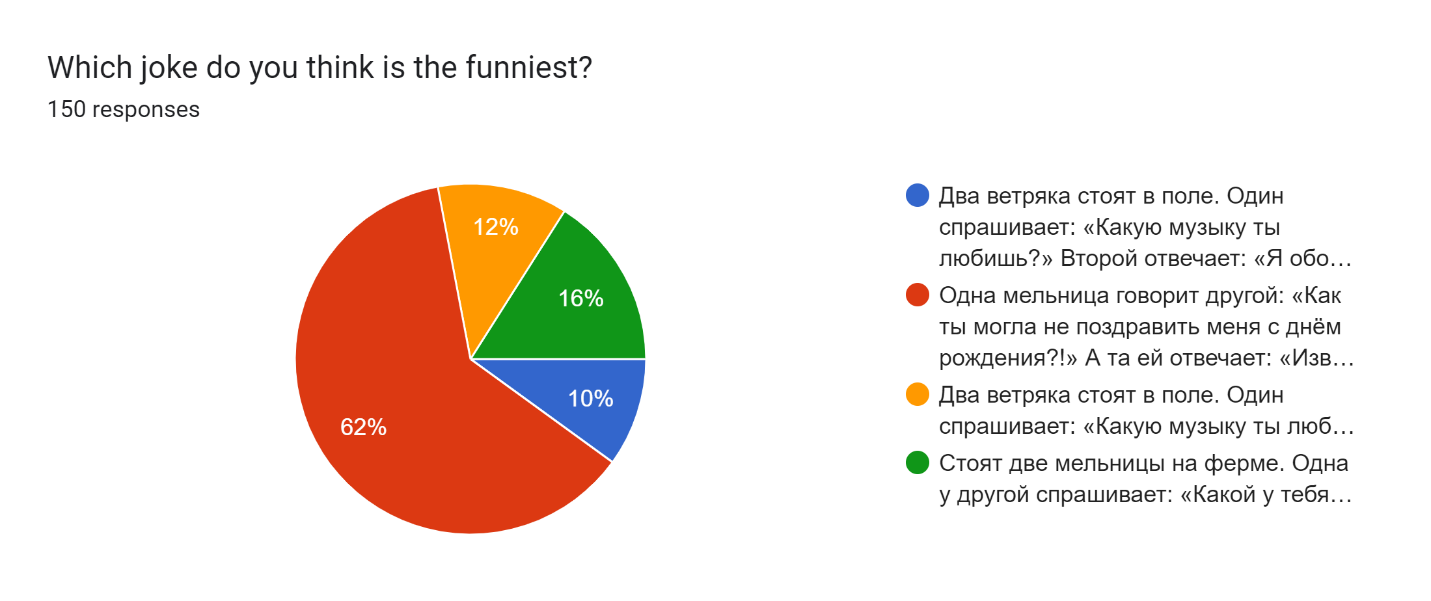
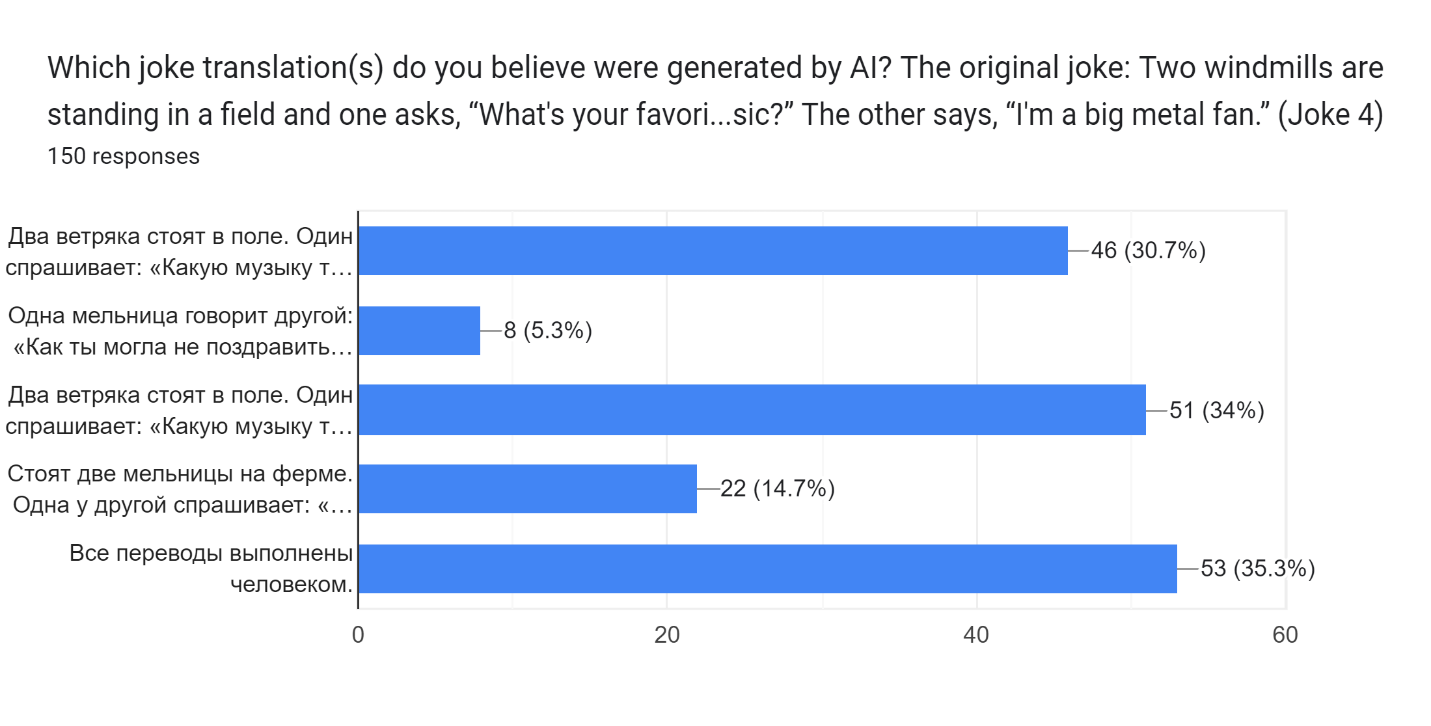

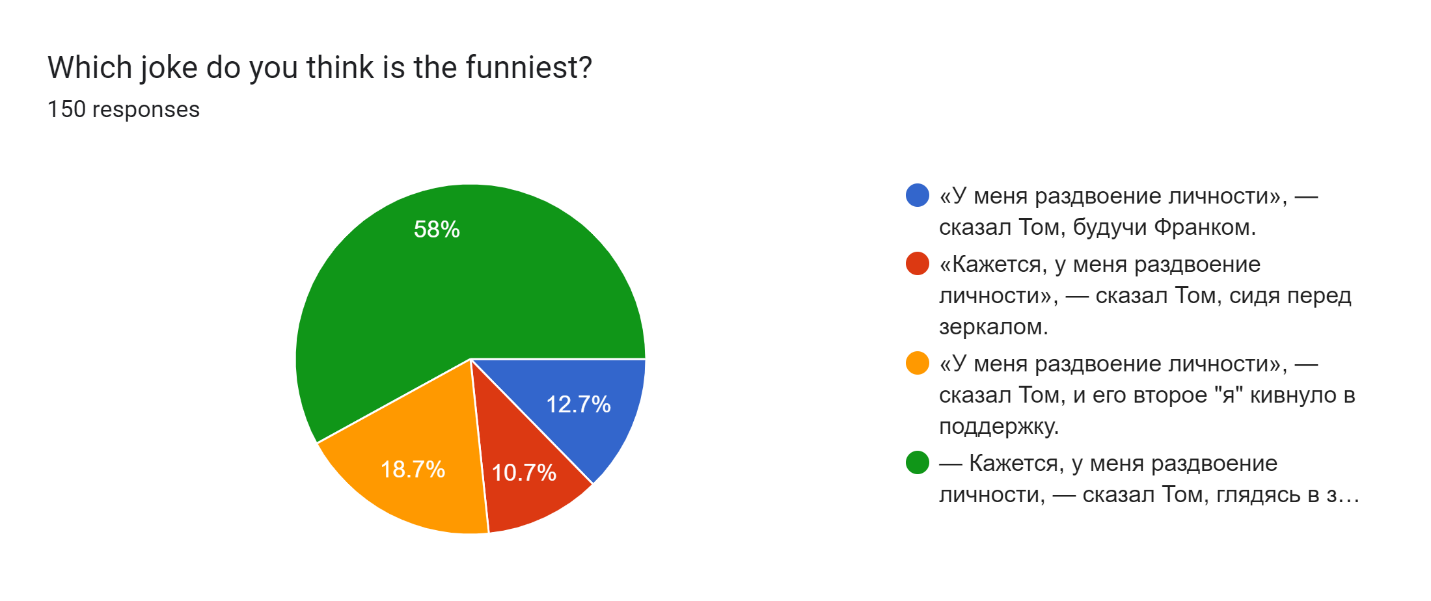
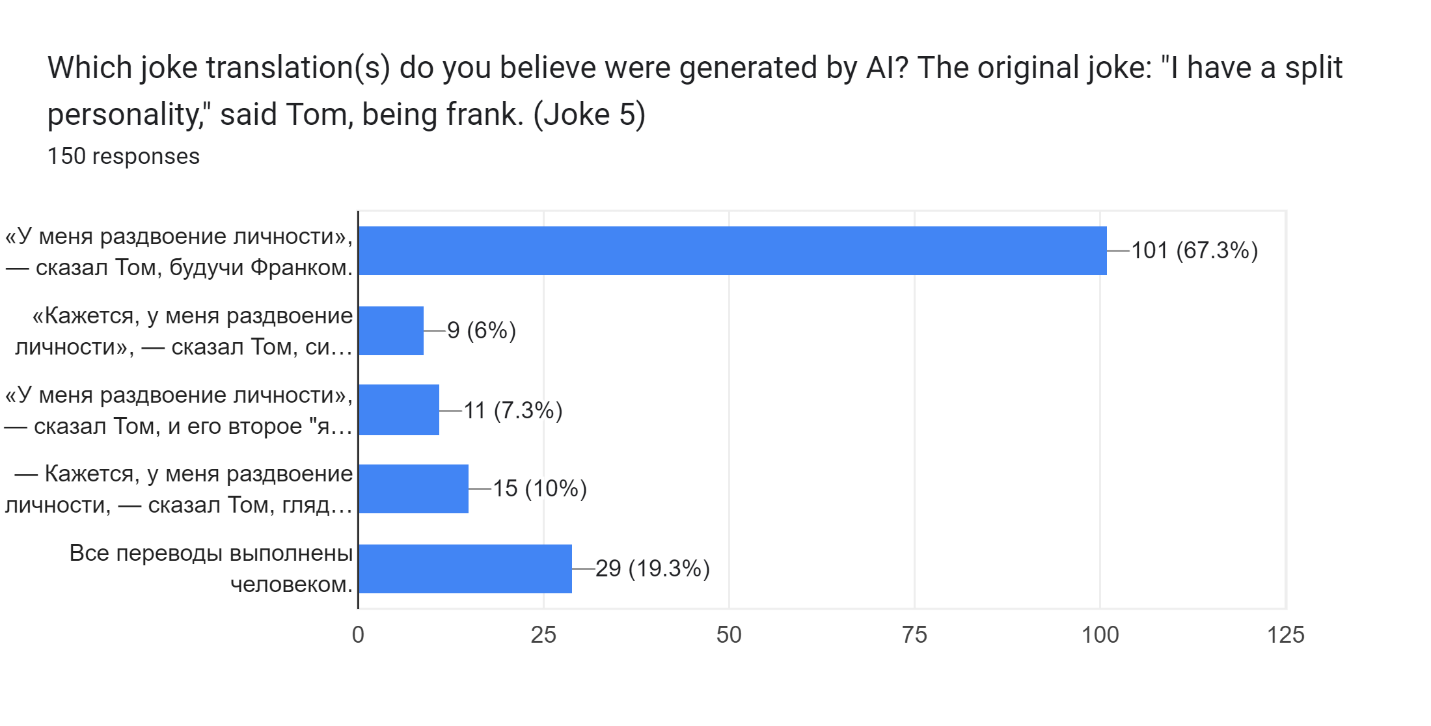

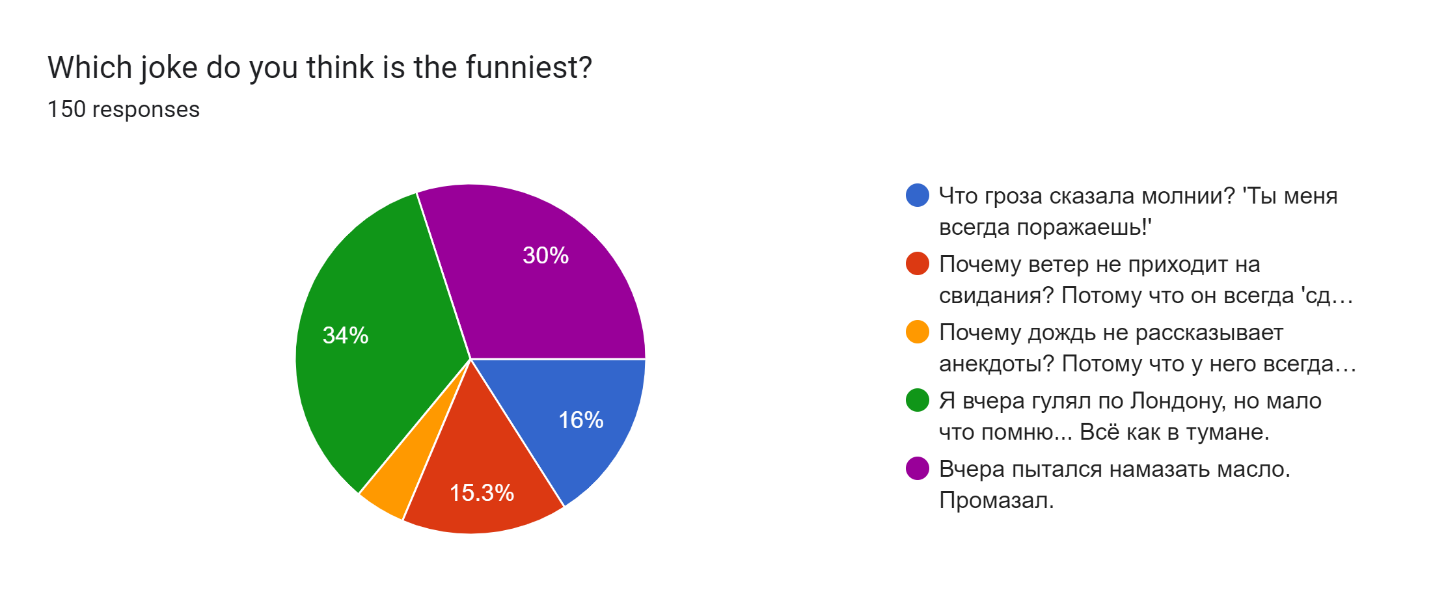
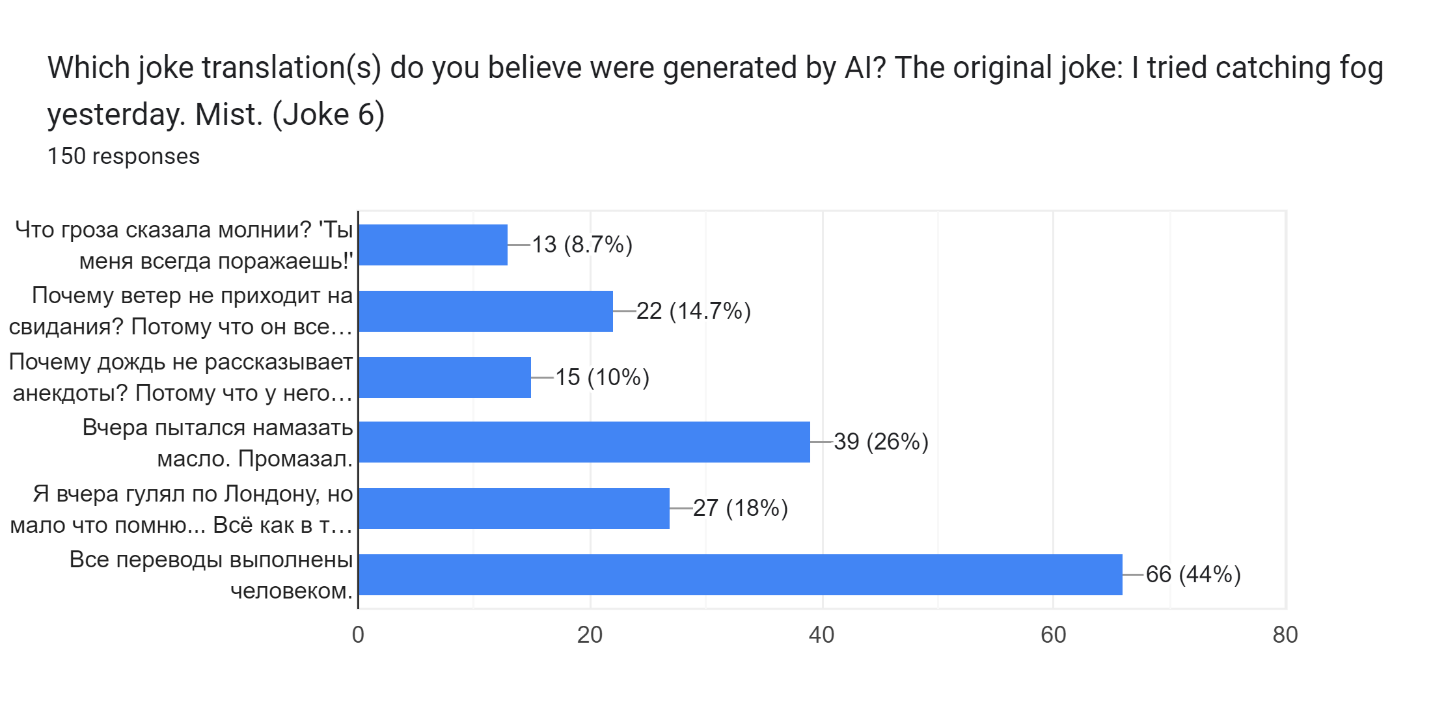

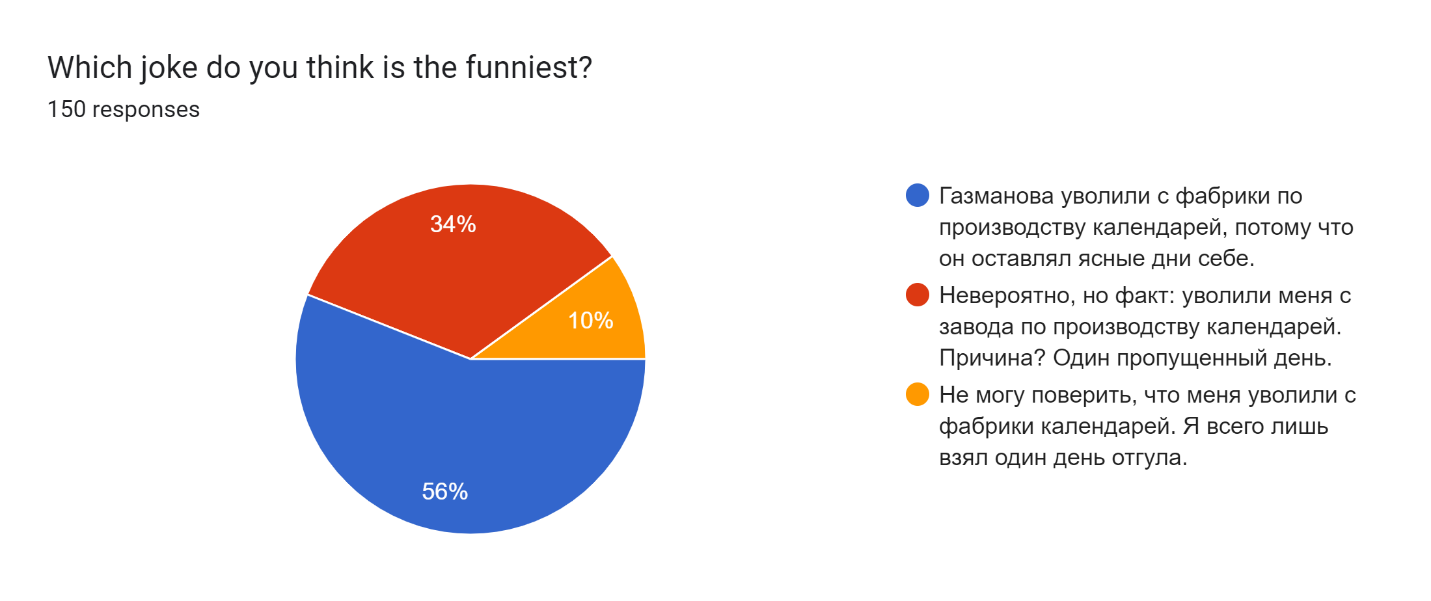
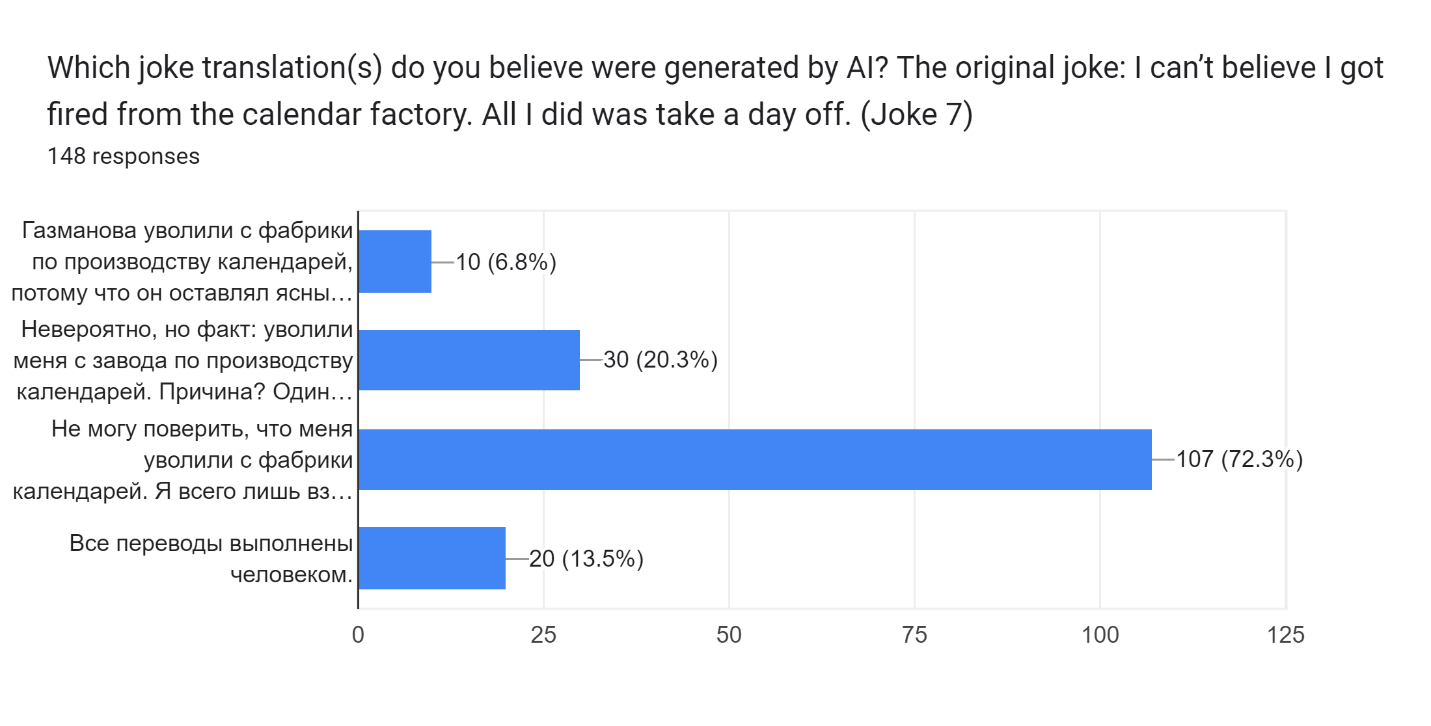

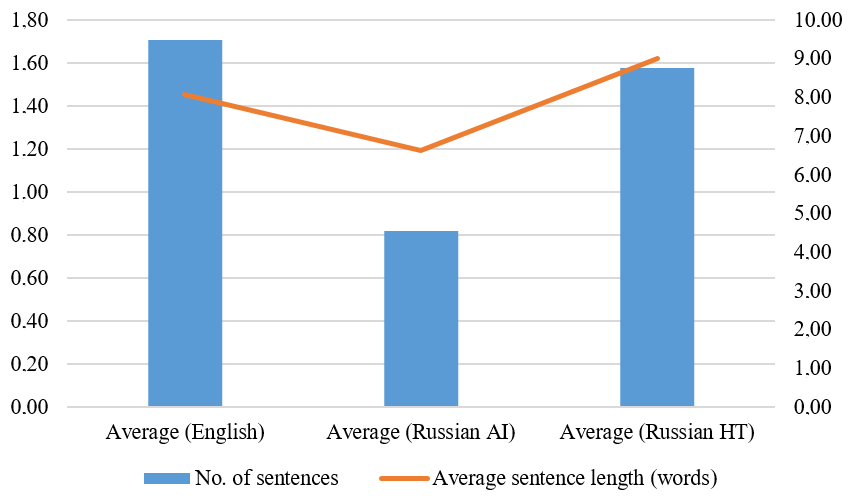
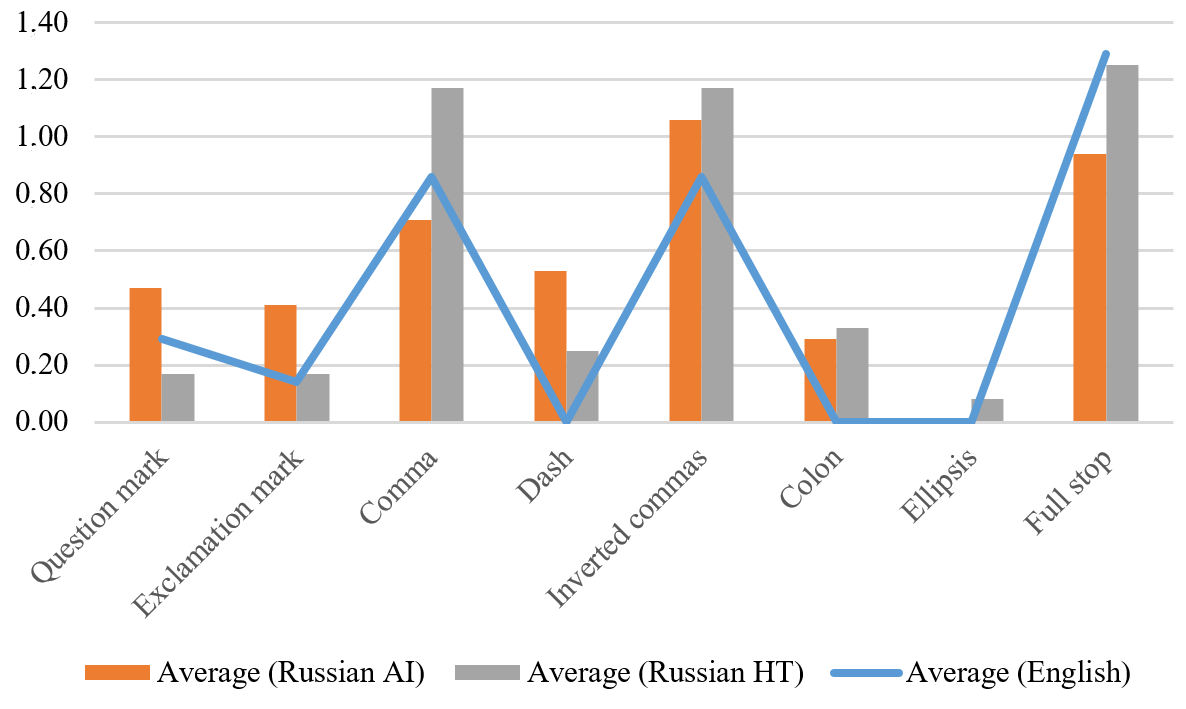
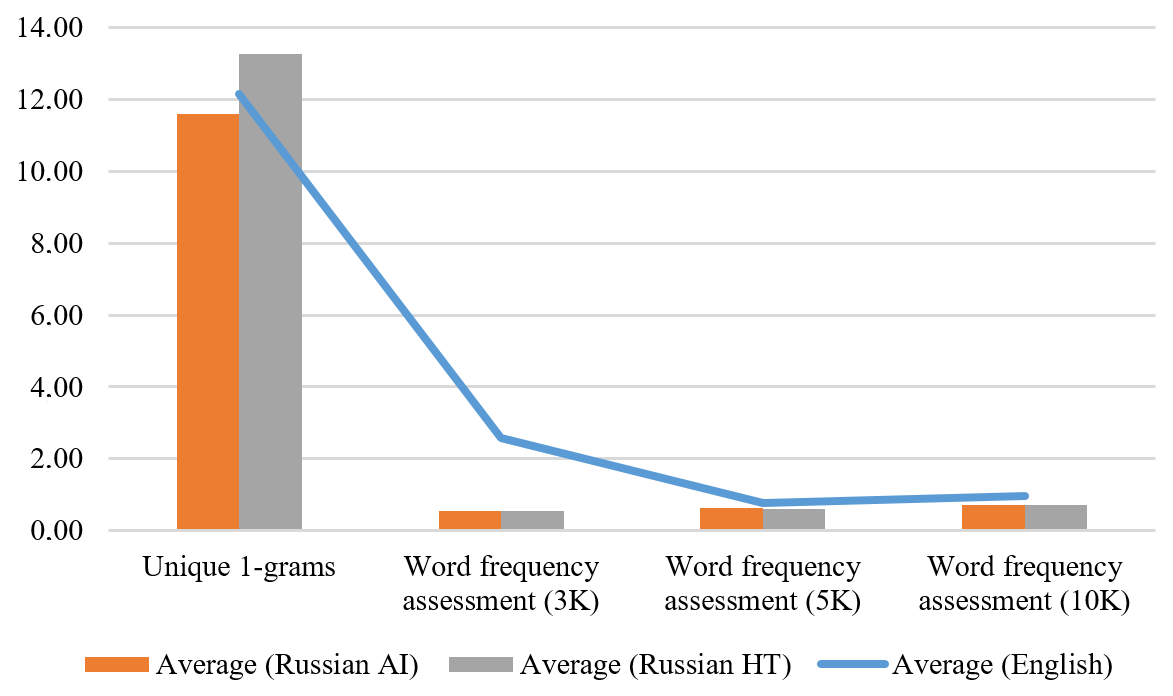
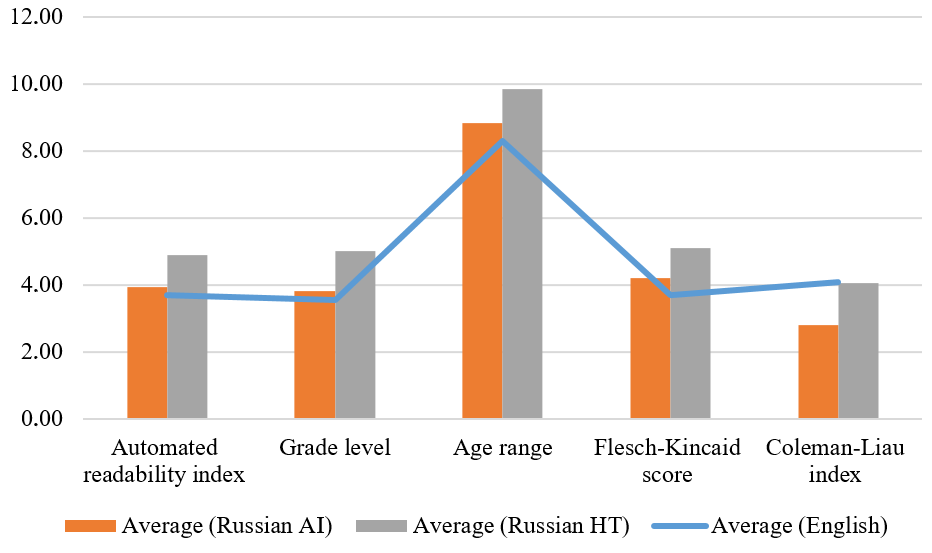
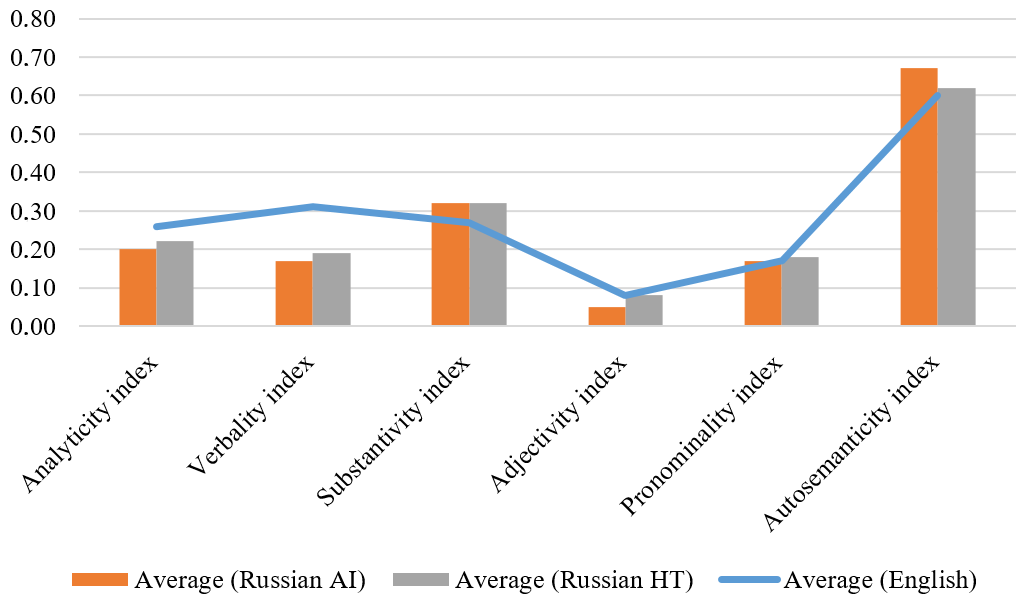
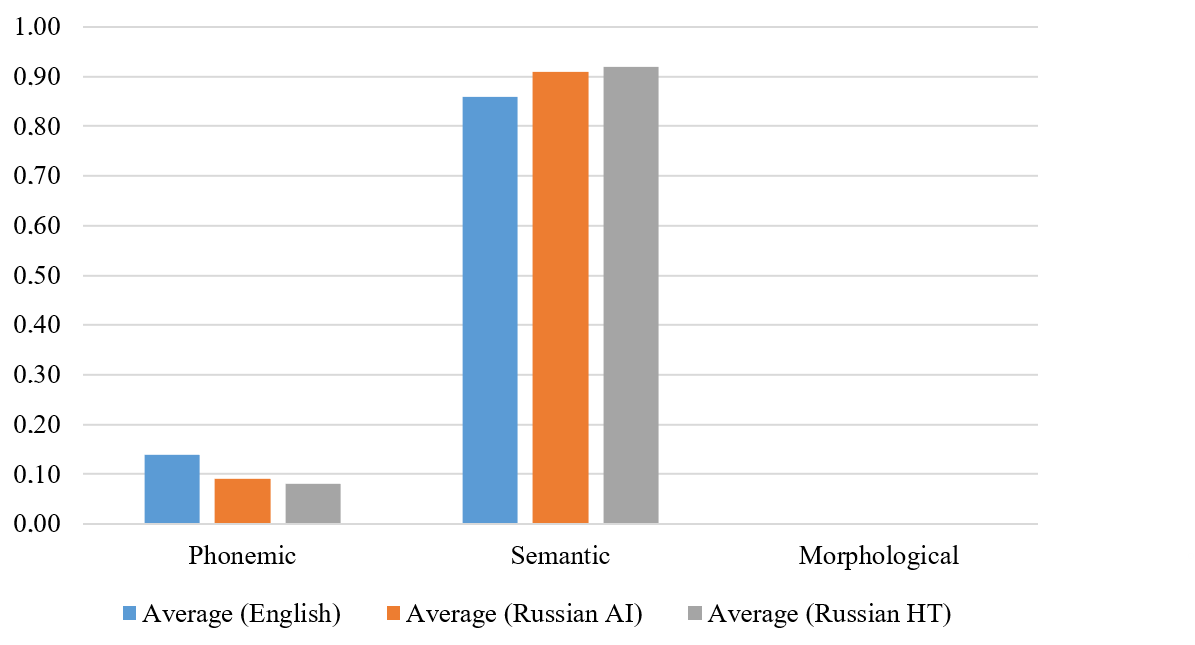
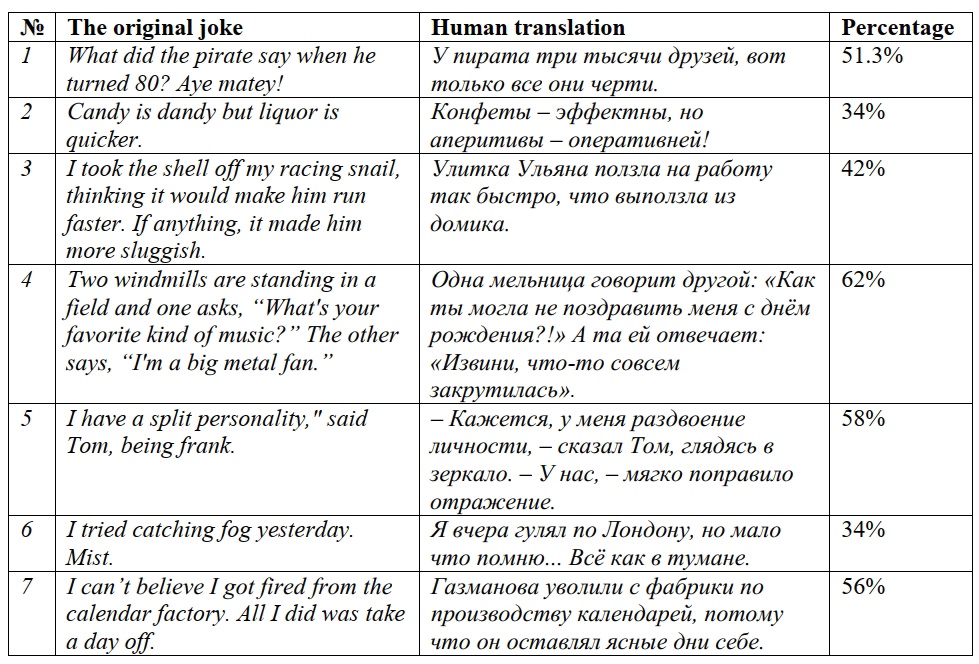

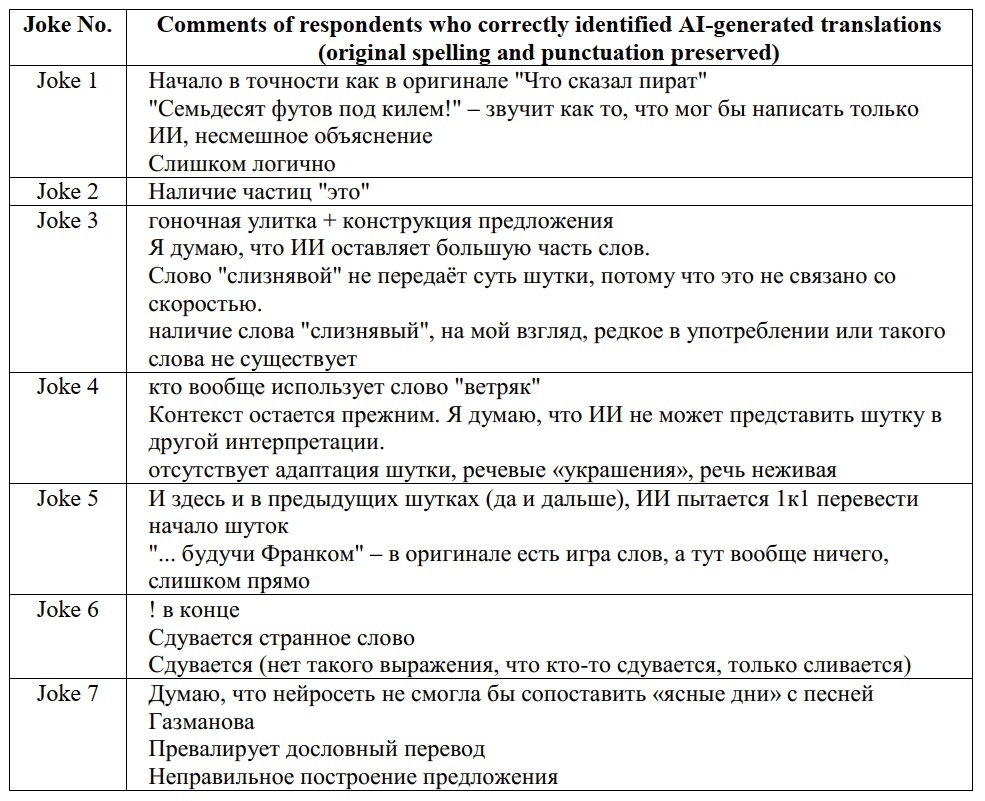
Rudenko, E. S., Semenova, M. Yu. (2024). Artificial vs Human Intelligence: A Case Study of Translating Jokes Based on Wordplay, Research Result. Theoretical and Applied Linguistics, 10 (4), 53-93.


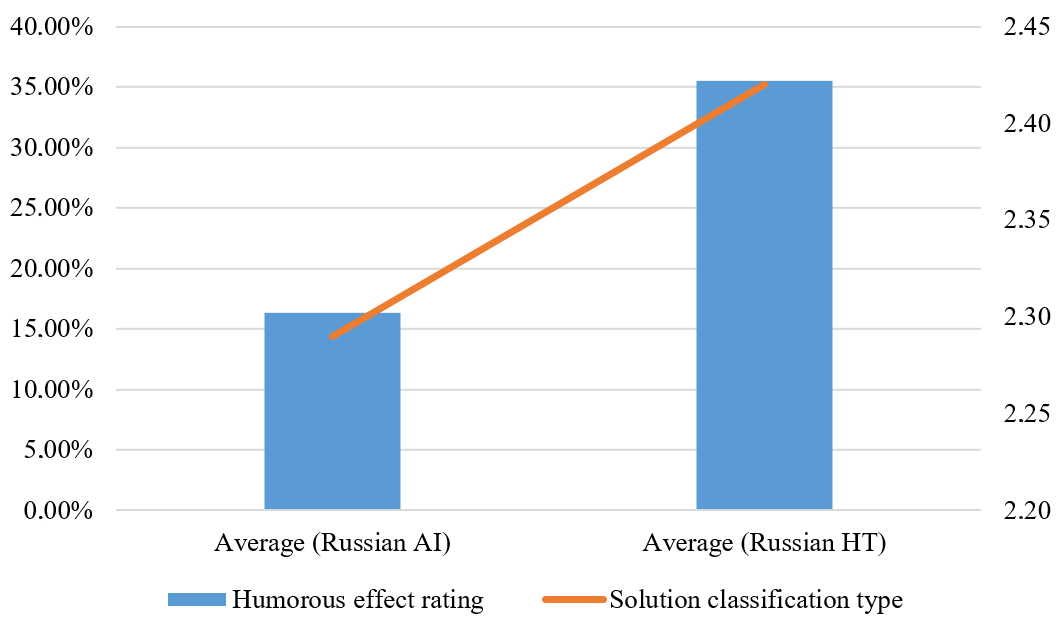
















While nobody left any comments to this publication.
You can be first.
The references will appear later